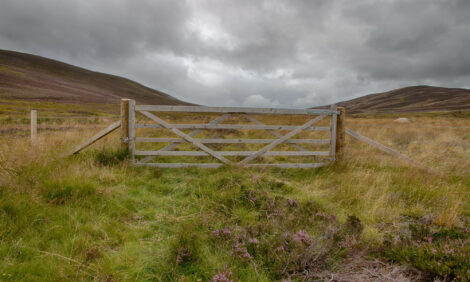



UK professor's expertise guides ABP sustainability programme
The programme will cost £1.5 millionThe expertise of a Harper Adams Professor is set to guide a unique £1.5 million sustainability programme for leading meat and agri-food firm ABP, according to a press release from the university.
The new PRISM 2030 programme will support 350 of its farmer suppliers, and share wider learnings across the UK beef and sheep sectors over the next two to three years.
It aims to help participants to improve their carbon footprint and sustainability across the entirety of the farm. The detailed programme will include assessment of carbon footprint, soil health, water use and support biodiversity creation and resource efficiency.
Support from Harper Adams University and The Andersons Centre will ensure that farmers have direct and ongoing access to, and feedback from, the very latest environmental innovations and methodologies.
Professor Jude Capper - as the ABP Chair in Sustainable Beef and Sheep Production at Harper Adams – will be leading for the University on the programme, working to interrogate data on the issue and discover what areas each producer could be focusing on over the duration of the project to achieve most gains.
“I'm very excited to be working on such an innovative project in conjunction with ABP and Andersons - this has the potential to make a real difference to UK beef and sheep farmers in terms of reducing greenhouse gas emissions and improving industry sustainability," said Capper.
“Our project team contains researchers in animal science, economics and data science and we will be taking a deep dive into the carbon footprint data to identify the ways in which farmers can improve their carbon footprint while maintaining profitability," she added.
“We will also be looking at trends in the data so that we can identify sector and region-specific mechanisms and best practices that can be adopted on-farm to improve sustainability," Capper said.
“Ultimately, being able to benchmark where farmers are currently, implement practices to reduce greenhouse gas emissions and to track progress over time has the potential to be a real game-changer for the UK beef and sheep farmers and will allow the industry to move forwards towards meeting Net Zero goals," she continued.
A sustainability grant will also be available for during the project, alongside peer-to-peer learning and expert advice throughout.
“British red meat production is amongst the most sustainable in the world, but we can and must do more because as an industry, we are well placed to be part of the climate solution," said Dean Holroyd, group technical and sustainability director for ABP.
“So we want to build on this position of strength, and while PRISM will mean direct support for those in our supply base who qualify for the programme, all of the outcomes will be made available to the wider industry," he continued.
"In this way, it’s our hope that this initiative will play a part in helping beef and sheep farmers across the country become the global leaders in sustainable meat production – with lower emissions, lower costs and improved productivity," Holroyd added.
Sharing support on behalf of the NFU livestock board, chair Richard Findlay said: ‘PRISM 2030 aims to support beef and sheep farmers in establishing farm based carbon and wider sustainability data, initially as a baseline before delivering wider support, including advice and equipment grants to help farmers improve thereafter."
“All of this helps evidence and reinforce with primary data the strong sustainability credentials where British livestock farmers sit within a world context but with further intent to progressively keep moving forward," Findlay continued.
“The NFU has set the ambitious goal of reaching net zero greenhouse gas emissions across the whole of agriculture in England and Wales by 2040, so I welcome this financial investment from ABP. Livestock producers will need initiatives and support like this to help us get there," he said.
The collaboration with Andersons is led by partner and Senior Research Consultant Michael Haverty, who, with his team, will focus on carbon assessments as well as other sustainability benchmarking.



